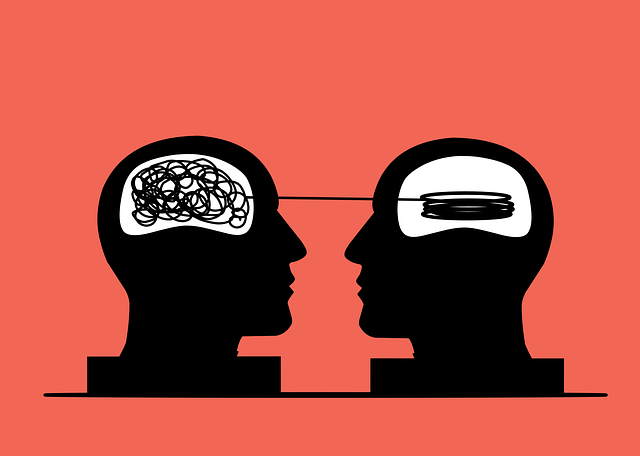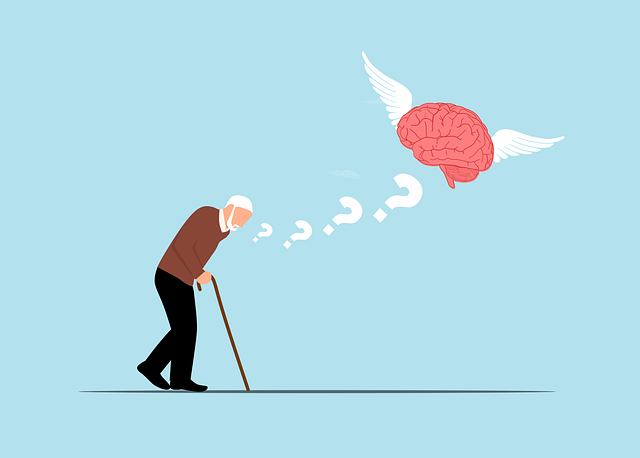Golden Psychosis Therapy offers a transformative approach to enhance social skills for individuals with schizophrenia or bipolar disorder. By teaching conversational abilities, empathy, and nonverbal communication, this therapy empowers clients to manage symptoms, reduce isolation, and improve emotional regulation. Through tailored activities, participants gain confidence in navigating social situations, boosting self-esteem, and fostering meaningful connections, ultimately enhancing their overall well-being and quality of life.
Social skills training is a powerful tool for managing mental health conditions, offering individuals strategies to navigate social interactions with confidence. This article delves into the significance of social skills and their profound impact on mental well-being. We explore Golden Psychosis Therapy as an innovative approach, focusing on techniques to enhance communication, empathy, and group participation. Additionally, we provide practical strategies for effective skill development, emphasizing the importance of integration and maintenance for long-term success, particularly in managing conditions that may hinder social engagement.
- Understanding Social Skills and Their Impact on Mental Health
- The Role of Golden Psychosis Therapy in Social Skills Training
- Strategies for Effective Social Skills Development
- Integration and Maintenance: Ensuring Long-Term Success
Understanding Social Skills and Their Impact on Mental Health

Social skills are a fundamental aspect of human connection and interaction, playing a pivotal role in our overall well-being. They encompass a range of abilities, from basic conversational skills to more complex behaviors like empathy, active listening, and nonverbal communication. For individuals living with mental health conditions, such as schizophrenia or bipolar disorder, social skills training can be a transformative tool. Golden Psychosis Therapy recognizes that these conditions often impact an individual’s ability to navigate social situations, leading to feelings of isolation and further exacerbating symptoms.
By integrating social skills training into treatment plans, professionals can empower individuals to manage their conditions more effectively. This involves teaching strategies for initiating and maintaining conversations, recognizing and responding appropriately to social cues, and building healthy relationships. Moreover, these skills are crucial in risk management planning for mental health professionals, as they help clients develop trauma support services and enhance emotional regulation.
The Role of Golden Psychosis Therapy in Social Skills Training

Golden Psychosis Therapy plays a pivotal role in social skills training for individuals managing mental health conditions. This therapeutic approach focuses on cultivating awareness and coping mechanisms, empowering individuals to navigate social interactions with increased confidence and resilience. By addressing underlying beliefs and thought patterns, Golden Psychosis Therapy facilitates self-reflection, enabling clients to better understand their emotional responses and triggers.
This process facilitates the development of effective empathy building strategies, crucial for fostering meaningful connections. Additionally, it promotes stress management techniques, enhancing overall well-being and allowing individuals to regulate their emotions during social engagements. Moreover, through targeted exercises, this therapy supports self-esteem improvement, encouraging a positive self-image that is integral to engaging in and enjoying social activities.
Strategies for Effective Social Skills Development

Social skills training is a powerful tool for individuals with mental health conditions, offering a path to enhanced connections and improved well-being. At the heart of this process lies the cultivation of empathy, which forms the foundation for meaningful interactions. Through various empathy building strategies, participants learn to recognize and understand others’ emotions, fostering deeper levels of communication and social bonding. This, in turn, can lead to a significant improvement in self-esteem, a key aspect often targeted in mental health care.
The design of effective programs involves tailoring activities and exercises to the specific needs and conditions of the individuals involved. Incorporating mental health education into these sessions enables participants to gain insights into their own experiences, promoting self-awareness and better management of social situations. In the context of Golden Psychosis Therapy, for instance, tailored strategies can help individuals navigate social challenges, build confidence in social settings, and develop coping mechanisms to enhance their overall quality of life.
Integration and Maintenance: Ensuring Long-Term Success

Integrating social skills training into mental health treatment plans is a key strategy for ensuring long-term success and maintaining improved emotional regulation. Many mental health conditions, such as schizophrenia or bipolar disorder, often involve symptoms that isolate individuals from social interactions, making it challenging to develop and sustain healthy relationships. Golden Psychosis Therapy recognizes the importance of addressing these social gaps to enhance overall mental wellness.
Through structured programs tailored to individual needs, clients learn essential communication skills, assertiveness techniques, and emotional coping strategies. These abilities empower them to navigate social situations more confidently, fostering connections that support their recovery journey. Moreover, incorporating practices like mindfulness meditation from the Mental Wellness Podcast Series Production can further strengthen emotional regulation and help individuals maintain newfound social interactions over time.
Social skills training, enhanced by evidence-based practices like Golden Psychosis Therapy, plays a pivotal role in improving mental health outcomes. By incorporating targeted strategies and integrating these skills into daily life, individuals with conditions such as schizophrenia can navigate social interactions more effectively. Through consistent practice and supportive environments, the benefits of social skills development extend far beyond isolated conversations—they foster meaningful connections, promote recovery, and contribute to improved quality of life.












